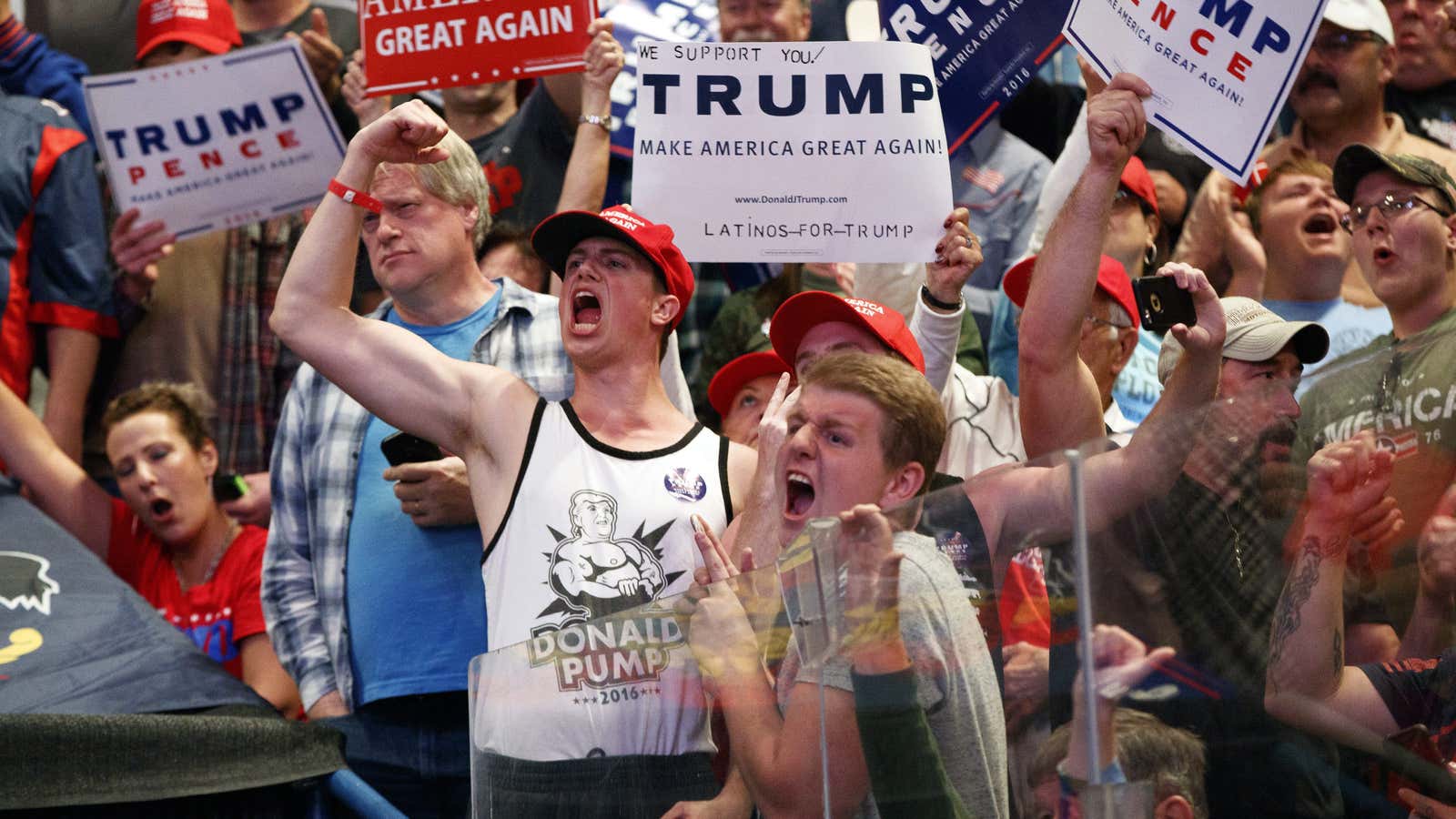For months, Donald Trump has alleged that the presidential election will be rigged against him. In a speech on Oct. 10, a day after his latest debate with Democratic nominee Hillary Clinton, Trump repeated the phrase three times: “We don’t want this election stolen from us.”
But even though he has no evidence, Trump can keep leveling the allegation almost without fear of violating any law, even if his followers go into the streets and create mayhem, according to legal experts. Incitement to violence is still illegal, but Trump would be potentially culpable only in the remote chance that he directly advocates specific acts of violence, such as the more or less immediate storming of a building.
The “rigged election” mantra fits into Trump’s us-versus-them narrative in which he, and only he, can rescue the US people from imminent demise against a vile criminal (Clinton) and a “Washington establishment” who are out to stop him, and prevent the people’s will.
Whether Trump actually believes this is irrelevant. What does is that his drumbeat assumes particular significance now, as his poll numbers have plunged, and he and Clinton have appeared to settle into their final home-stretch strategies.
Trump’s objective is to close the gap with Clinton enough that, after an election that he appears likely to lose, he has a beachhead from which to argue that it was stolen from him. For Clinton, the aim now is to run up the numbers so big and broad across the country that, even in the hypothetical case that some voters cheated, any Trump claim of fraud would ring hollow.
The fear among Democrats and independents is that Trump’s challenge could take the form of civil disobedience and even violence among his passionate followers, leading to a potential public crisis should, for example, congressmen refuse to recognize Clinton as president-elect. At a pro-Trump campaign event in Iowa on Oct. 11, a woman explicitly told Mike Pence, Trump’s vice presidential running mate, that she is prepared to participate in a revolution should Clinton win. Pence tried to dissuade her, saying, “Yeah, don’t say that.”
What seems clear, according to free-speech experts, is that Trump would be almost entirely inoculated from any criminal violation for inciting his followers into holding street demonstrations. “The government can’t suppress such public statements on the grounds that they ‘whip up’ people or ‘threaten the peace,'” said Eugene Volokh, a professor at the University of California at Los Angeles, and a leading expert on free speech.
The law stems from a 1969 case called Brandenburg v. Ohio, in which the Supreme Court found that a member of the Ku Klux Klan could teach a doctrine of violence as long as he did not expressly advocate a more or less immediate violent action.
“In theory, something might cross the line, say if you’re talking to a crowd right next to a building that you’re urging people to destroy,” Volokh said. “But nothing that I’ve heard about Trump saying about the election being rigged, or about gun rights, even comes close to punishable incitement.”
A previous version of this post incorrectly gave the year of Brandenburg v. Ohio as 1960.
